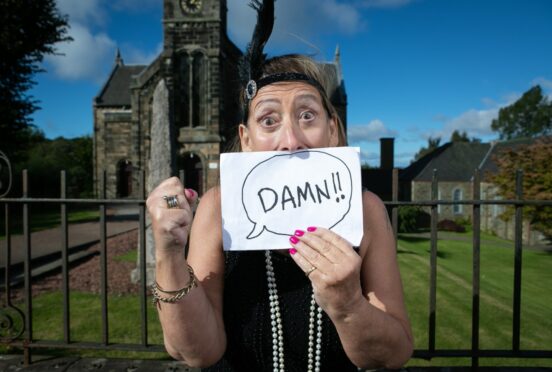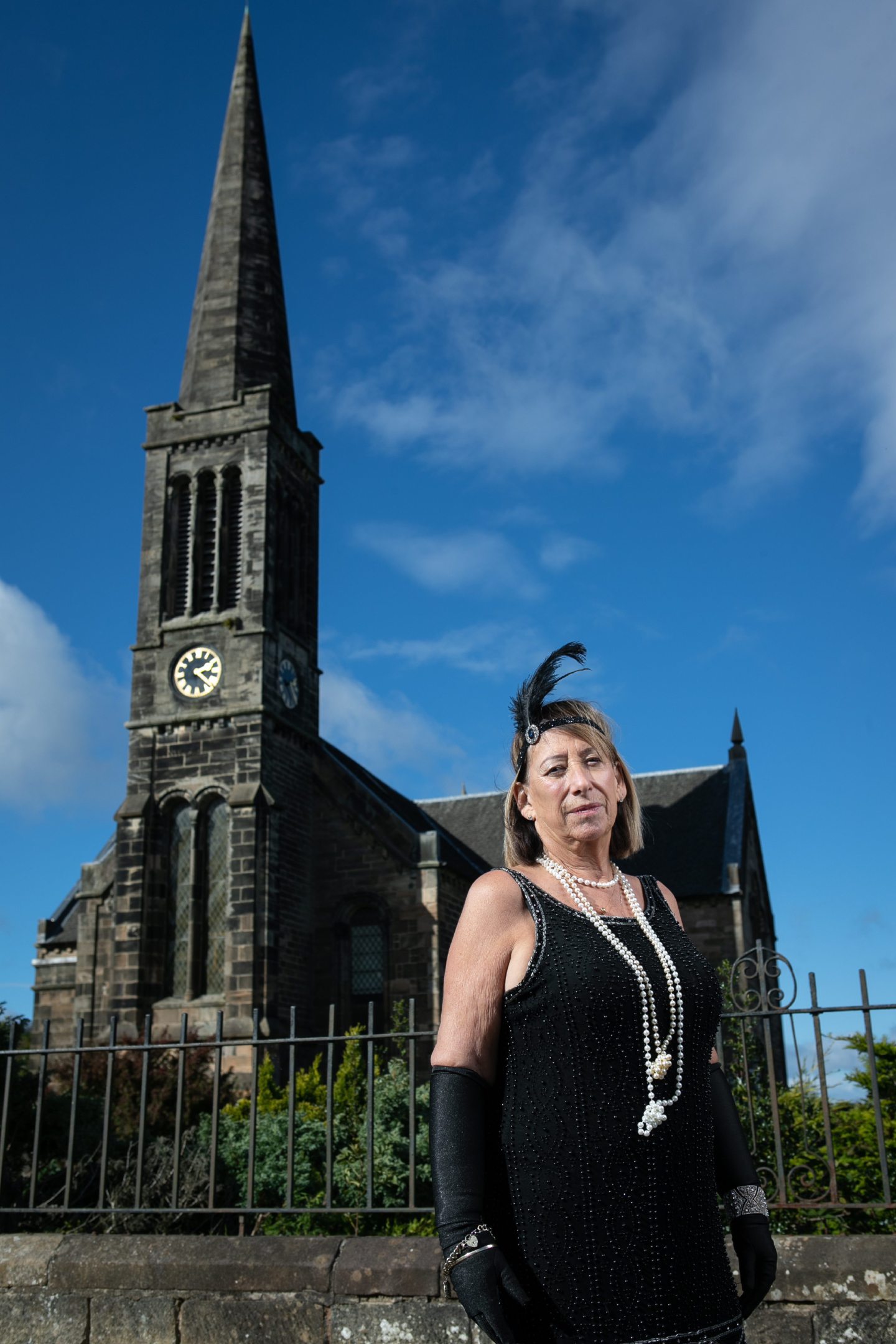
An am-dram theatre group’s church hall production has been cancelled after the minister objected to the word “damn” in the script.
The New Barrhead Players were told the script had to change before their forthcoming and debut play, The Gypsy, could be staged but have refused. In an email, Rev Pamela Gordon said: “In the Church of Scotland, we have rules and standards we must follow which are passed on to us from the Church of Scotland HQ.
“In the script the words ‘damn’ and ‘damned’ are used which are not words that are appropriate in a church setting.
“Also, the script refers to an affair which is committing adultery and that is not encouraged within the settings of the Church of Scotland. We try to follow the teachings of the Bible which makes it clear that adultery is not to be tolerated.”
The play, a 1920s-style farce, was supposed to run for three nights at the end of the month at Bourock Church in Barrhead but, after the script and plot were questioned, the theatre group was then asked to sign a contract by the church and decided the show could not go on.
Director Charlie Marx, who also wrote the play, said: “After all the hard work everyone has put in since the beginning of the year, we now have nowhere to stage our production.
“It’s beyond disappointing and seems, to us at least, an over-reaction to a word that hasn’t raised an eyebrow for 100 years. Of course there are special considerations in a church but, given the context, having to cancel because of a word in such common use seems extreme.”
Marx, who wrote the two-act play specially for the New Barrhead Players, said the story revolves around a group of upper-class friends who get caught out when a fortune teller reveals a secret affair.
He said: “It’s just a bit of silly fun.
There’s absolutely nothing at all that you couldn’t present in front of a child. Or their granny for that matter.
“We had a previous meeting with the minister and discussed if there was anything she might not like. I removed the words ‘oh God!’ from the script but never for a moment thought that someone saying ‘oh damn!’ would become an issue.”
Alma Mearns, producer of the play and founder of the New Barrhead Players, said: ‘I started the drama group after the end of lockdown because I wanted to try to bring the community together and do something for the town I love.
“We’ve all spent months working hard on this production. Instead of this being a pleasant and joyful experience bringing the community together, it has been soured a little. And now this. It is all very disappointing and unnecessary.
“We’ve sold a lot of tickets but now are desperately looking to find somewhere else to stage our performance. I still hope the minister will reconsider. That would be wonderful. We don’t want to let people down.”
Rev Gordon declined to comment but the Church of Scotland confirmed the disagreement between office-bearers and the theatre group. It said the writer had declined offers to compromise on the script, adding: “The amateur dramatics group was presented with a contract in early September to enable it to be staged in the church hall over three evenings in October but they have yet to sign and return it.
“In an email, the playwright informed the minister that if they are not pleased with the script then he will remove himself from the project and advise the New Barrhead
Players to do the same. Office bearers at the church have tried hard to be constructive to try and reach a compromise but the playwright and wider group have yet to properly set out their intentions to them in a proper, professional way.”
Dr Scott Hames, a languages expert at the University of Stirling, said that while the origins of the word were as an imprecation – an act of invoking evil on someone – “damn” has lost its power to shock over the centuries. Hames added: “I would guess only a minority of Scots find it an objectionable word, either in everyday speech or in novels or plays.
“Having said that, I probably would hesitate to use this word in a church, or in the presence of clergy. It is after all an ‘imprecation’ – a kind of mild curse – that carries with it a very faint scent of blasphemy.
“I’m not in favour of policing language but we do lose something if we completely desensitise ourselves and the impact of words can depend on the context of how and where they are used.”
Meanwhile, Billy Kay, author of a number of books on the Scots language, said: “Centuries ago, because of the historical religious connotations, the use of the word damn would be seen as offensive but today, and in the context it is being used in the play, it is a mild expletive at best.
“Scots have a wonderful, colourful use of language but despite what people may think, we haven’t always embraced swearing.”

Enjoy the convenience of having The Sunday Post delivered as a digital ePaper straight to your smartphone, tablet or computer.
Subscribe for only £5.49 a month and enjoy all the benefits of the printed paper as a digital replica.
Subscribe © Andrew Cawley
© Andrew Cawley